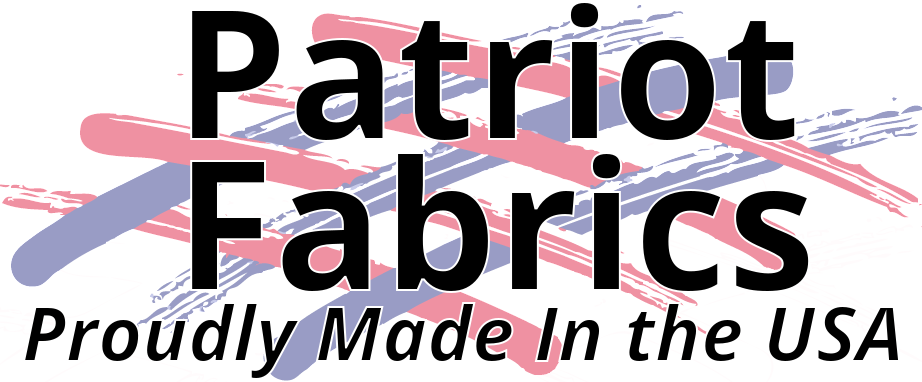Patriot Fabrics is the mill direct online outlet for small yardage purchases from Mount Vernon Mills. All fabrics sold through Patriot Fabrics are proudly made in the USA!
Mount Vernon piece dyed fabrics and denims are used by some of the largest fashion and workwear manufacturers in the world. End uses for our fabrics include products such as 100% cotton blue jeans, stretch blue jeans, work pants, work shirts, outerwear, overalls, aprons, caps, bags, furniture etc.
Mount Vernon piece dyed fabrics and denims are used by some of the largest fashion and workwear manufacturers in the world. End uses for our fabrics include products such as 100% cotton blue jeans, stretch blue jeans, work pants, work shirts, outerwear, overalls, aprons, caps, bags, furniture etc.
Mount Vernon Mills, Inc. is a diversified and integrated manufacturer of textile, chemical and related products for the apparel, industrial, institutional, and commercial markets. Products include denim, piece dyed and flame resistant fabrics for apparel, pocketing, table linens and other hospitality products, textile sizing and finishing chemicals, paint roller fabrics and automotive fabrics.
Headquartered in Mauldin, South Carolina, Mount Vernon has about 2,700 employees and operates production facilities in the U.S., located in North Carolina, South Carolina, Georgia, Alabama, and Mississippi. And, from terminals in Alabama and South Carolina, Mount Vernon provides truckload and less-than-truckload hauling services to internal and external customers throughout the U.S.
MOUNT VERNON MILLS – A GREAT AMERICAN TEXTILE COMPANY
OUR LINEAGE
The first mill in our family began operating in 1838 in South Carolina. It was known as the Pendelton Manufacturing Co. It would later be known as it is today as the LaFrance plant. LaFrance produces industrial, filtration, home furnishings, and products for the automotive industry in the same location (but a newer facility). La France would eventually fall under the Riegel Textile Corp. and later Mount Vernon Mills Inc. leadership. It now stands as one of the six divisions in the Mount Vernon family.In 1845, the Allgood family founded what is now the largest vertical denim operation in the world in Trion, Georgia. This mill, then and now known as the Trion Mill, was actually in the path of General William T. Sherman during his march to the sea. But it was spared the torch after General Sherman spent the night in the Allgood family’s home. Evidently the topic of the mill manufacturing products for the Confederacy did not come up over dinner (see more by clicking the “history” tab at www.mvmdenim.com). Benjamin D. Riegel would acquire this operation in 1912, and it would change hands once again when the R. B. Pamplin Corp. acquired the company in 1985. This mill produces a wide variety of denim, including washed, over-dyed, and stretch fabrics. Other products in the group include twills, duck and plain-weave fabrics. These are piece-dyed for career apparel, work clothing and sportswear—most of which is considered "bottom weight" for pants, slacks and trousers. The mill—which is now a part of the Apparel Fabrics Division—is also an important supplier of FR fabrics and military uniform fabrics.
The company namesake, Mount Vernon Mills, traces its origin to the Jones Falls area in what is now Baltimore. Several flour or grist mills were built there around 1810, and by the 1830s, many of the mills were being converted into cotton duck manufacturing operations. One such mill, when it was converted in 1847, was named “Mount Vernon Mill No. 1.” This mill, together with several others in the area, soon would become the Mount Vernon Co., a leading maker of quality cotton duck cloth for sails for clipper ships and canvas for tents. In case you were curious, duck cloth is another term for the canvas material that was then in huge demand for these products.
The early years of Mount Vernon provided at least one interesting historical footnote. Fabrics made by the company’s mill in Baltimore were sewn into tents used by the Union Army in the Civil War. In addition to Trion’s contribution to the Confederacy noted above—at the same time the Tallassee, AL, facility, which became part of Mount Vernon in 1900, produced cloth for uniforms and carbine rifles for the Confederate Army. Talk about hedging your bets!
